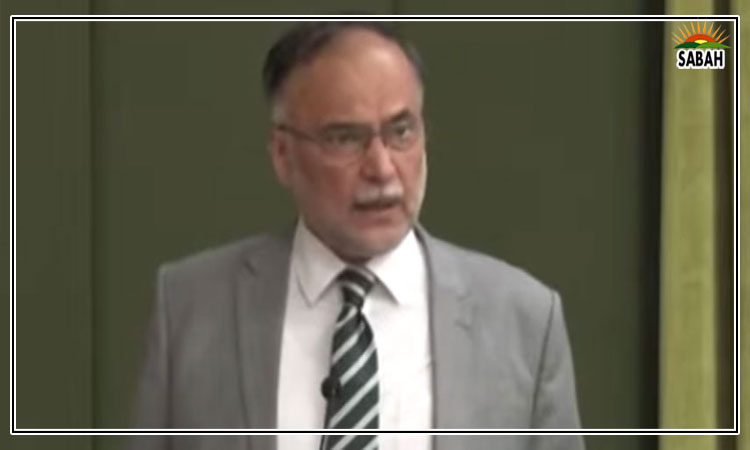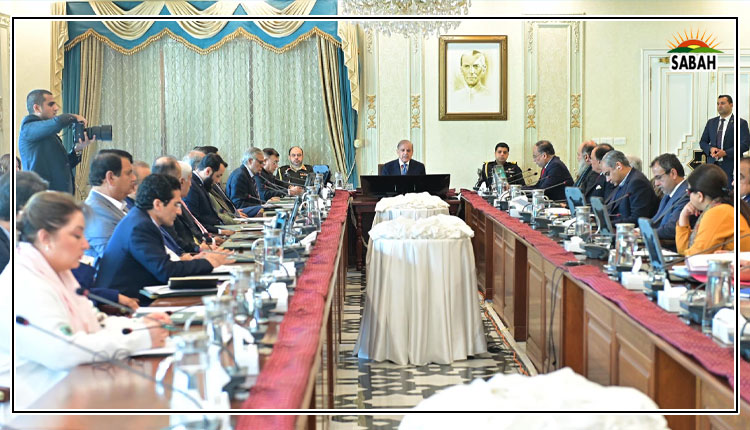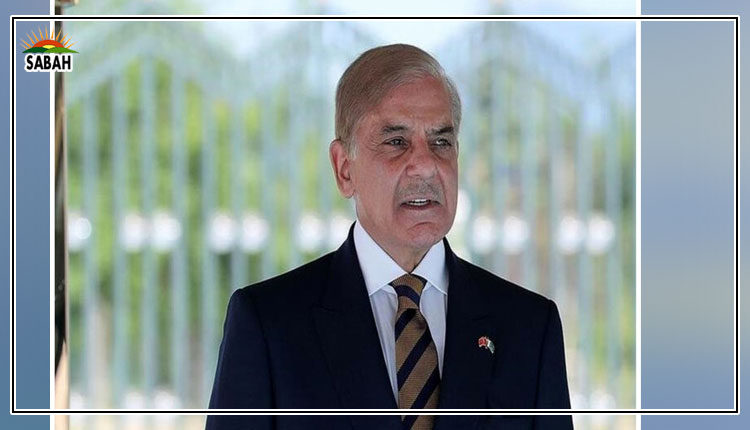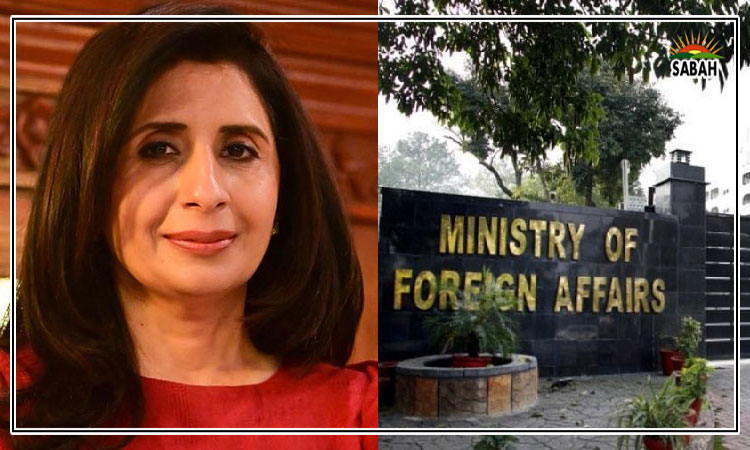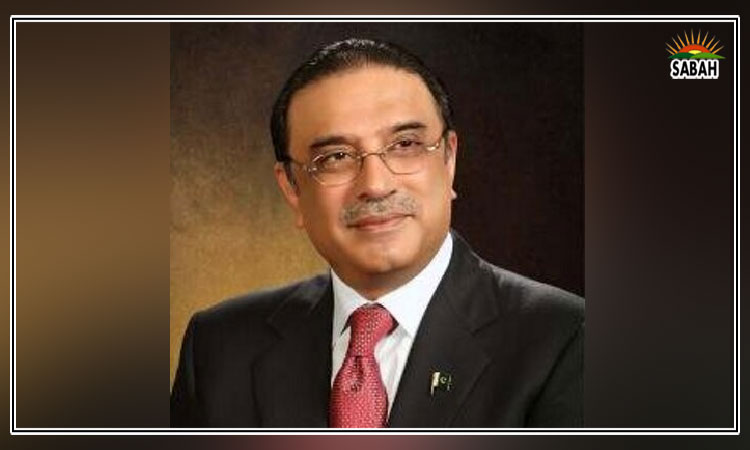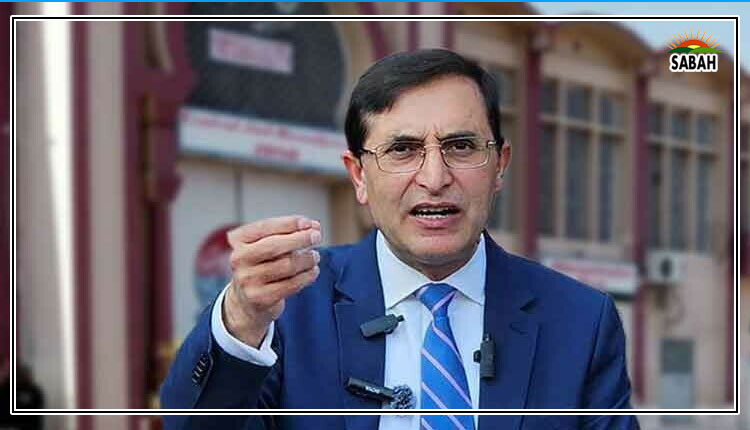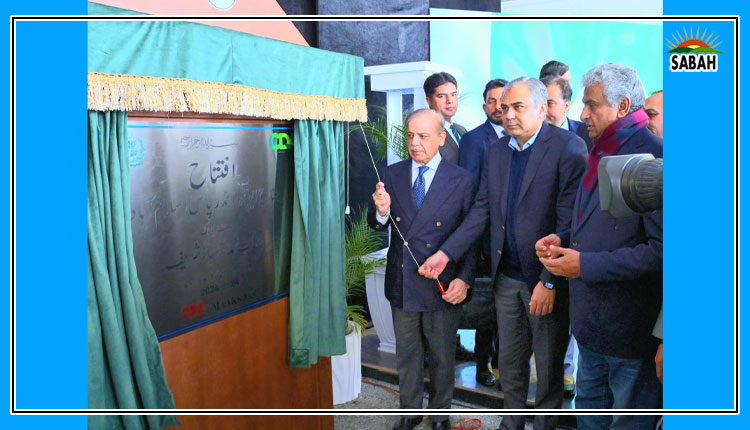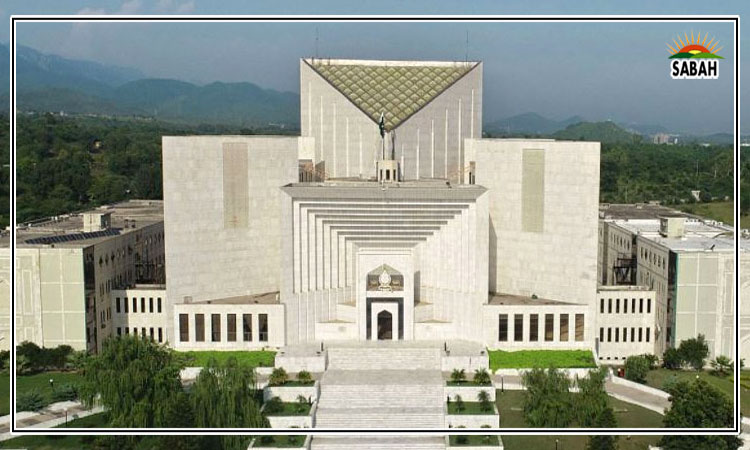Apex court accepts intra-court appeals filed against the Sep 15, 2023, majority judgment striking down the amendments to NAO, 1999
ISLAMABAD, Sep 06 (SABAH): In a major victory for the incumbent government, the Supreme Court of Pakistan on Friday accepted intra-court appeals filed against the September 15, 2023, majority judgment striking down the amendments to the National Accountability Ordinance (NAO), 1999. The court reinstated the changes made to the NAB laws during the previous PDM-led government.
A five-member larger bench headed by Chief Justice of Pakistan (CJP) Justice Qazi Faiz Isa and comprising Justice Aminuddin Khan, Justice Jamal Khan Mandokhail, Justice Athar Minallah and Justice Syed Hasan Azhar Rizvi announced the unanimous verdict. In the intra-party appeals, the top anti-graft body and the PTI founder were made respondents.
In its 5-0 ruling, the apex court incorporated an additional note by Justice Athar Minallah, stating that the federal government’s appeal is not maintainable. However, he also noted that the intra-court appeals of private parties have been accepted for hearing.
“I have carefully read the opinion eloquently authored by the Chief Justice and I concur that the impugned majority judgment is liable to be set aside. With profound respect, in my opinion the appeal filed by the Federation was not competent under section 5 of the Supreme Court (Practice and Procedure) Act, 2023 and the same is hereby dismissed. However, the appeals preferred by the private appellants were maintainable and the same are allowed. Consequently, the impugned judgment is set aside. Moreover, the opinion recorded in the minority judgment is affirmed to the effect that members of the Armed Forces and Judges of the constitutional courts are not immune from accountability under the National Accountability Ordinance, 1999. The detailed reasons shall be recorded later” justice Athar Minallah wrote in his additional note.
Meanwhile Justice Syed Hassan Azhar Rizvi wrote “I agree with the conclusion but I am unable to concur with the reasons. So, I will give my own reasoning through a separate note”.
The ruling also overturned the majority decision by former Chief Justice Umar Ata Bandial and retired Justice Ijazul Ahsan, which had nullified the amendments.
Approving the intra-court appeals filed by the federal and provincial governments, the apex court remarked that Pakistan Tehreek-e-Insaf (PTI) founder Imran Khan could not prove that NAB amendments were unconstitutional.
The amendments — National Accountability (Second Amendment) Act 2022 — were passed in a joint sitting of the parliament in April 2022 during the Pakistan Democratic Movement (PDM)-led government which came into power after ousting ex-premier Khan via a no-trust move in 2022.
It modified sections 2, 4, 5, 6, 25 and 26 of the NAB laws, however, 9 out of 10 amendments were declared “null and void” by the CJP Bandial-led bench on the PTI founder’s petition filed in June 2022.
Referring to the September 15 ruling, the court on Friday pointed out that the Supreme Court (Practice and Procedure) Act, 2023 — which required that a plea must be heard by “not less than five judges of the SC” — was enacted while Imran Khan’s petition was pending adjudication.
The top court noted that the petition challenging the amendments made to the Ordinance was not heard and decided in accordance with the SC (Practice and Procedure) Act — hereinafter referred to as the “Act”.
“If the provisions of the Act had been followed the Petition may have been decided differently [….] These [intra-court] appeals could justifiably be allowed on the ground that since the Petition was not heard and decided as required by the Act by a five-member bench the impugned judgment is coram non-judice and a nullity in law,” it added.
Furthermore, the five-member bench’s judgment released on Friday also pointed out that last year’s ruling did not demonstrate how the amendments violated or infringed any of the fundamental rights provisioned under Articles 14, 23 and 25 of the Constitution.
“Petition and the impugned judgment failed to establish that the Amendments were unconstitutional, nor have we been so persuaded in this regard,” the apex court noted, adding that the larger bench wasn’t persuaded by Khan and learned Senior Advocate Khawaja Haris Ahmed that the amendments violated the Constitution. “We allow these appeals by setting aside the impugned judgment,” reads the SC order.
The judgment said that the Supreme Court whenever possible must try to uphold legislation rather than rush to strike it down, and if there be two or more interpretations of any legislation to adopt the interpretation which upholds it. This does not mean that when the law, or any provision thereof, is unconstitutional it should not be so declared and struck down. However, the Petition and the impugned judgment failed to establish that the Amendments were unconstitutional, nor have we been so persuaded in this regard.
The judgment said that the Constitution has set out the respective roles of the Legislature and that of the Judiciary and every care should be taken to ensure that neither encroaches onto the domain of the other. Constitutional institutions better serve the people when they respect each other and perform the functions respectively granted to them by the Constitution. The Chief Justice and the Judges of the Supreme Court are not the gatekeepers of Parliament.
The judgment said that therefore, for the aforesaid reasons, we allow these appeals by setting aside the impugned judgment, and dismiss the Petition. However, there is no order as to costs.
In a 2-1 majority verdict announced in September last year, a three-member bench led by then-CJP Bandial had approved Imran Khan’s petition, challenging the NAB law amendments made during the tenure of the previous PDM-led government.
Alongside ex-CJP Bandial, the bench comprising Justice Syed Mansoor Ali Shah and Justice Ijazul Ahsan had held more than 50 hearings on Imran’s petition.
Following the modifications in the anti-corruption watchdog laws, several graft cases against public office holders were closed down, however, the top court’s ruling restored all closed enquiries filed with the NAB.
The apex court ordered restoring all graft cases worth less than Rs500 million that were closed down against the political leaders belonging to different political parties and public office holders and declared the amendments void.
Furthermore, the court directed the NAB to return all records related to cases to relevant courts within seven days.



